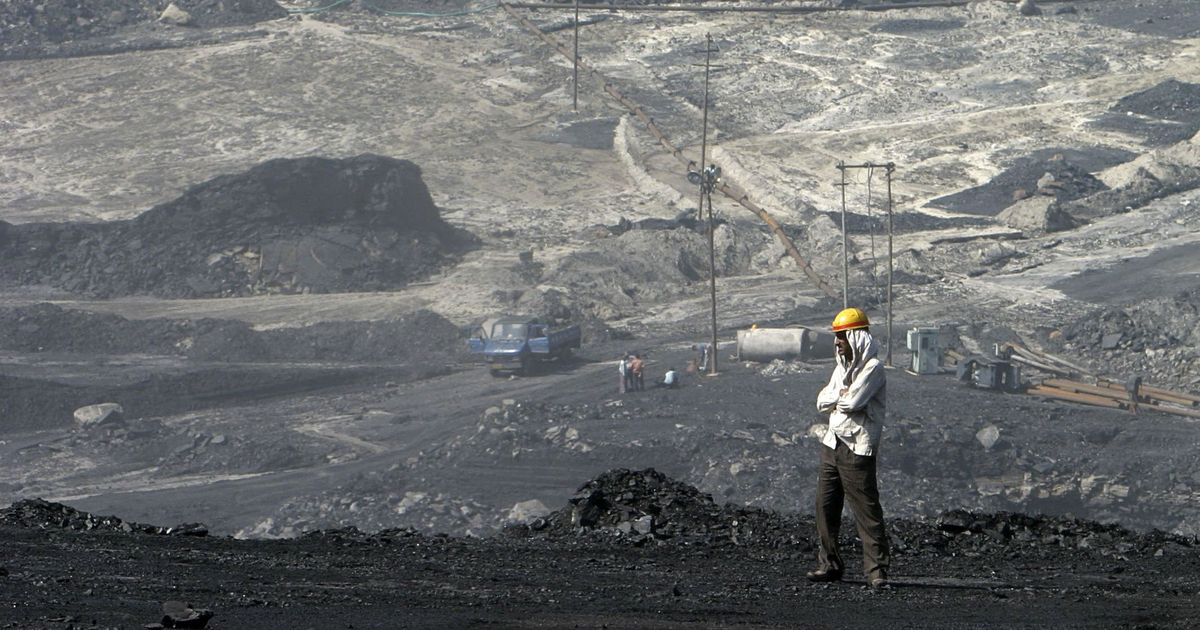New Delhi: The Bombay high court has restrained the Directorate of Revenue Intelligence (DRI) from acting on letters rogatory (LRs) issued against Adani group companies under probe for their alleged involvement in the Rs 29,000 crore- Indonesian coal over-invoicing controversy.
This is a major setback to the ongoing investigation in this case and could further erode public confidence in the DRI’s ability to bring alleged scamsters to book.
It could also lend weight to the former Reserve Bank of India governor Raghuram Rajan’s suggestion for a multiagency probe into this matter.
Legal experts that The Wire spoke to have pointed out loopholes in DRI’s approach. On expert said that the Adani group has succeeded in challenging DRI’s LR move as the agency is seeking information about suspected offshore companies without registering a case.
Section 166 of the Code of Criminal Procedure (CrPC) provides for issuing LRs to overseas judicial authorities to seek their help in investigating an offshore entity.
“The DRI officer invoked the Section 166 without registering a case, which is not permissible and that is why the entire action of the agency has been challenged,” Mohit Chaudhary, managing partner, Kings and Alliance, a law firm, told The Wire.
He added that if the DRI wants to seek documents from overseas companies for its investgation, it will have to first register a case in this matter.
The Adani group moved the Bombay high court last month after it failed to find relief from the Singapore high court against the order of a lower court that directed it to submit documents relating to Indonesian coal imports to the DRI.
A bench of justices Ranjit More and Bharati Dangre restrained the DRI from acting upon or giving effect to the LRs and directed it to file a detailed reply on a plea filed by Adani Enterprises against the agency.
Since May 2014, the DRI has issued demand notice worth Rs 6,000 crore from three Adani group firms – Adani Power Maharashtra, Adani Power Rajasthan, and Maharashtra Eastern Grid Power Transmission Company.
The group is also accused of overvaluing power-plant equipment to the tune of to the tune of Rs 3,974 crore.
Earlier this year, the DRI had issued LRs to courts in Singapore, Dubai, Hong Kong, Switzerland, and Indonesia seeking help of their judicial authorities in getting documents from Adani group companies operating from these offshore jurisdictions.
The over-invoicing cases again hit headlines recently after Rajan told a parliamentary panel that as RBI governor, he had given a list of companies alleged to be involved in the scam to the Prime Minister’s Office. He wanted tough action against these companies so that a message could be sent out to other corporate fraudsters. However, no action has been taken by the PMO against these companies so far.
Rajan’s suggestion makes great sense given that investigation in the over-invoicing case has moved at a tardy pace.
The Central Bureau of Investigation (CBI) too, as The Wire first reported, abandoned its probe into these cases under less-than-ideal circumstances. The CBI had registered a preliminary enquiry (PE) in the over-invoicing scam after the DRI issued a notice to the Adani Group, which allegedly accounted for a decent share in over-invoiced coal imports. However, the investigative agency later closed it, citing “jurisdictional issues”, in a move that has been criticised by legal experts.
The CBI also only filed a PE against NTPC in the coal import scam that happened during 2008 to 2010, and has mostly avoided a probe against the major corporate houses involved in over-invoicing.
Moreover, the clean chit given by the DRI’s adjudicating authority to the Adani group in cases involving nearly Rs 4,000 crore-over-invoicing of power equipment bill have caused embarrassment to the agency, forcing it to appeal against the order.
In its appeal filed before the Customs, Excise and Service Tax Appellate Tribunal (CESTAT) in Mumbai in November, the agency claimed that the adjudication order “suffers from several contradictions which indicate either total non-application of mind or recklessness in passing of the order”.
It further argued, “The manner in which the adjudicating authority has gone on to describe an otherwise dubious contract process in glowing terms as transparent, independent and good corporate governance practice… only points at eagerness and bias on the part of adjudicating authority to justify overvaluation ignoring facts to the contrary.”
The customs adjudicating authority’s clean chit to the Adani group also caused huge embarrassment to the finance ministry, which later assured the Delhi high court that all cases will be pursued to their logical conclusion.
The court had asked the ministry to clarify its stand in these cases while hearing a public interest litigation (PIL) filed by social activist Harsh Mander. It also asked the CBI to explain why it closed the PE even as the DRI was still probing these cases. The PIL had had sought setting up of a special investigation team (SIT) to probe cases of over-invoicing of imported coal and power equipment.
As per the affidavit submitted by the ministry in court, the DRI in 2014 gathered intelligence that certain private companies in the power sector are involved in over-invoicing of coal and power generation equipment sourced from overseas.
The gathered intelligence indicated that while Indonesian coal was being shipped directly from Indonesian ports to India, the invoices were routed through one or more intermediaries in various countries such as Singapore, Dubai, Hong Kong and British Virgin Islands (UK) to artificially inflate value, the affidavit said.
